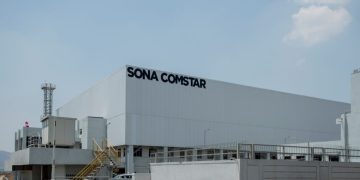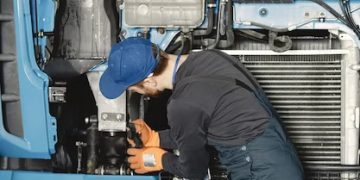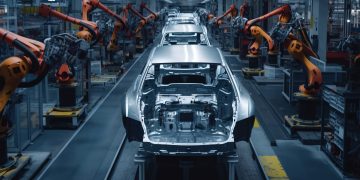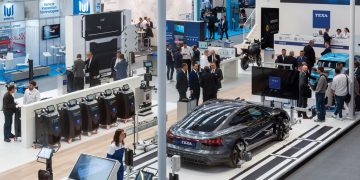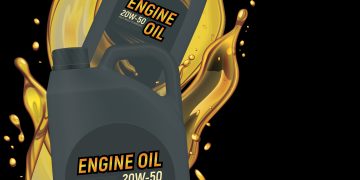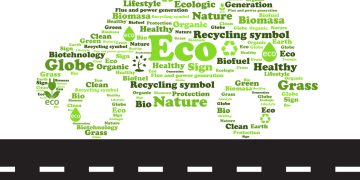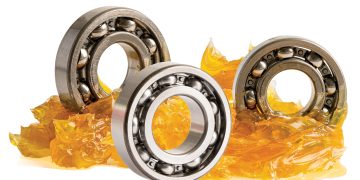As the new President of FADA, what are your key priorities and strategies to drive the growth and success of the automotive industry, particularly in terms of enhancing the dealer network and addressing industry challenges?
Serving as the President of the Federation of Automobile Dealers Association (FADA), the apex body for automotive retail in India, is a significant responsibility that I have undertaken. As a cornerstone organization that represents over 15,000 members, operating across 26,500 outlets and employing more than 4.5 million people, FADA’s influence extends across all levels of the automotive sector.
In my capacity as President, there are a few strategic priorities that I am dedicated to advancing:
- Implementation of the Model Dealer Agreement (MDA): Dealer agreements form the contractual backbone of the relationship between Original Equipment Manufacturers (OEMs) and dealerships. Unfortunately, past disparities within these agreements, ranging from ambiguous renewal terms to imbalanced termination clauses, have created unnecessary hardships for dealers. To rectify this, we have devised the Model Dealer Agreement (MDA), an initiative to bring parity and standardization to these contracts, akin to global best practices. This ensures a balanced distribution of rights and responsibilities between OEMs and dealers. The MDA has received positive feedback from numerous OEMs, affirming its potential effectiveness. As of now, we have met 14 OEMs across categories and I am happy to say that MG Motors has already adopted our MDA and has made changes in their Dealer agreement accordingly. Also Honda Cars in its internal note to Dealers have extended their contract by 2 months so that during this time, they can study our MDA and make all changes accordingly. I am also happy to share that there are a few more OEMs who are at advanced stages of evaluating our MDA so that changes in their Dealer Agreement can be made.
- Advocacy and Representation for Dealers: As the steward of the automotive dealer network, FADA’s role is to articulate the ground realities, opportunities, and challenges faced by dealers to the government and relevant industry bodies. We have recently addressed critical issues such as unscrupulous activities by multi-brand outlets in Mumbai and Delhi, that posed potential risks to the reputation of OEMs and the industry. FADA’s quick intervention ensured the maintenance of ethical business practices and integrity in the automotive landscape. We have worked with MoRTH to implement 5 years Trade Certificate. Apart from this, Pre-owned vehicles are also brought under the ambit of TC and entire registration process for the same will now happen seamlessly over Vahan platform. FADA has also played a pivotal role during transition to OBD 2 norms where we worked closely with MoRTH to make sure that all state RTOs are in sync and there is no confusion left thus impacting any sale and registration of old norm vehicles. In fact, OEMs across the board used our advisory to inform their channels on the same line!
- Dealer Training and Skills Upgradation: As the automotive industry evolves, we are committed to ensuring our dealer members stay abreast of industry changes and new skills. In this spirit, FADA had joined forces with Google and now META to equip dealers with the latest digital marketing strategies. This initiative is particularly crucial as we enter the Digital India era, where technology plays a vital role in shaping consumer behavior.
- Road Safety and Promoting Sustainable Practices: FADA is steadfast in its commitment to Road Safety and contribution towards a greener India. We have launched a series of videos under our Road Safety Campaign ‘Buckle Up India’ where our members will run such videos during vehicle delivery ceremony and while the vehicle is going thru servicing to educate customers on the importance of wearing seat belts and helmets. One of our other noteworthy initiatives is the “One Vehicle – One Tree” campaign, where we encourage every dealer to gift or plant a sapling for each vehicle sold to the customer. This effort is aimed at reducing the environmental impact of our industry and promoting a more sustainable society. Additionally, FADA is also advocating the efficient use of natural resources within dealership operations, underlining our commitment to a sustainable future.
These initiatives reflect my vision for FADA’s role as a leader, mentor and advocate within India’s automotive industry. We aim to work collaboratively, fostering innovation and growth while ensuring the sustainable and ethical advancement of our sector.
As the automotive industry shifts towards sustainability, what steps can dealerships take to promote the adoption of greener practices within their operations, such as implementing renewable energy sources or incorporating eco-friendly materials in showroom design?
The automotive industry is currently undergoing a seismic shift towards sustainable and eco-friendly practices. As President of FADA, I’m deeply invested in promoting this green transition at the dealership level, where we can make a profound impact on overall sustainability.
- Embracing Energy Efficiency: Dealerships have a considerable opportunity to reduce energy consumption, both in terms of size and operational processes. Many dealers are now optimizing their showroom designs to leverage natural light, leading to a significant reduction in energy consumption. We are also encouraging the integration of renewable energy sources like solar panels, following the best practices in places like California and Germany, where dealerships are harnessing solar power not only for their operations but also to supply excess power back to the grid.
- Reducing Water Usage: Water conservation is another area where dealerships can make significant strides. Innovative methods like waterless car washing and effective water management systems can drastically minimize wastage. This is a practice that has gained popularity in regions experiencing water scarcity, such as the Middle East and parts of Africa, where waterless car cleaning methods have become the norm. in fact, in many cities in India, this is now becoming the new normal especially during the hot summer when water scarcity increases.
- Eco-friendly Building Materials: Following global trends, many dealerships are considering eco-friendly materials in their infrastructure. Green building materials not only reduce the environmental impact but also create a healthier workplace. Examples from Sweden and the Netherlands show dealerships built with recycled materials, green roofs, and efficient insulation, leading the way for us to follow.
- Sustainable Business Practices: Beyond physical changes, we are advocating for dealerships to adopt sustainable business practices, such as digital paperwork to reduce paper usage and recycling initiatives for vehicle parts and other materials. This approach aligns with the best practices from Japan, where recycling and waste reduction strategies are a significant aspect of their business culture. In fact, for vehicle registration process, we are pushing for paperless registration as the entire data is already stored on the cloud in digital format.
- Green Vehicle Portfolio: Finally, it is crucial to promote the sale of greener vehicles. With the rise of electric vehicles (EVs) and hybrid technology, dealers can play a key role in promoting these sustainable options to customers. We look up to countries like Norway, where dealerships are leading the transition to electric mobility with a majority of cars sold being electric.
As a collective, the dealership community can contribute significantly to the overall sustainability goals of the automotive industry. These steps, influenced by global best practices, can help create a greener, cleaner and more sustainable future for us all.
The recent govt announcement of producing five million metric tons of hydrogen by 2030 presents new opportunities for the automotive industry. How can dealerships play a role in educating consumers about hydrogen fuel cell vehicles and addressing any apprehensions or misconceptions regarding this technology?
Indeed, the government’s ambitious plan to produce five million metric tons of hydrogen by 2030 opens up a new frontier of opportunities for the automotive industry. The advent of hydrogen fuel cell vehicles (FCVs) represents a substantial part of the future mobility landscape and dealerships have a crucial role to play in shaping this narrative. However, the technology is still at a very initial stage and has a long journey to go but the auto dealer community remains committed to its OEM partners and customers, making the best of its efforts to educate customers about the newer and most advanced technology.
- Education and Awareness: Dealerships are often the first point of interaction for customers in their car buying journey. We see this as an opportunity to impart knowledge about the benefits and potential of hydrogen FCVs. By conducting awareness campaigns, workshops, and engaging customers through interactive demonstrations, we can help break down the complexities of this technology and present it in an accessible way. Countries which are leading in FCVs, have dealerships that regularly hold educational events and live demonstrations to create awareness.
- Addressing Apprehensions: There are widespread misconceptions about the safety and reliability of hydrogen as a fuel, largely due to its volatile nature. Dealerships can play a pivotal role in addressing these apprehensions by educating customers about the rigorous safety standards that FCVs meet and the extensive safety measures incorporated in their design. Dealerships will have to work closely with FCV manufacturers to train their staff which will help dispel these fears.
- Infrastructure Development: We can also partner with stakeholders in setting up hydrogen refuelling infrastructure. Dealerships can provide space for such facilities, similar to how dealerships in California are integrating hydrogen refuelling stations within their premises. Such an approach can assuage customer concerns regarding the availability of refuelling stations.
- Collaboration with OEMs: Aligning with our OEM partners to disseminate accurate information about hydrogen technology will be key. We can leverage their resources to develop educational materials and training modules for our sales and service staff. Such collaborations are prevalent in matured markets, where dealerships and OEMs jointly conduct training programs for their employees to equip them with comprehensive knowledge about FCVs.
- Promoting Test Drives: Like any other vehicle, one of the best ways to familiarize customers with FCVs is through test drives. This direct experience can effectively dispel many myths and apprehensions that customers may have. This strategy has been effectively employed by dealerships in California, where customer responses to test drives have been overwhelmingly positive.
As the automotive industry embraces sustainability, there is a growing need for effective recycling and disposal of end-of-life vehicles. How can dealerships support and participate in recycling initiatives, such as partnering with recycling facilities or providing incentives for customers to return their old vehicles for proper disposal?
As the automotive industry pivots towards sustainability, the importance of comprehensive end-of-life vehicle management cannot be overstated. I am acutely aware of the significant role dealerships play in championing and facilitating effective vehicle recycling initiatives.
- Scrappage Policy Support: The Indian Government’s Scrappage Policy is a landmark initiative aimed at promoting the recycling and disposal of old vehicles. As crucial components of the automotive ecosystem, dealerships are well-positioned to actively participate in and support this program. Dealerships have the potential to serve as key information and collection points, guiding vehicle owners through the scrappage process and contributing to responsible, sustainable vehicle lifecycle management. However, till the time the policy is made mandatory, we may not see much traction in the same.
- Collaborating with Recycling Facilities: Partnering with authorized recycling facilities could be another proactive measure. Establishing a strong network of recycling facilities would streamline the disposal process, providing customers with easy access to scrappage options and reinforcing the importance of responsible vehicle disposal.
- Customer Incentive Programs: Incentivizing customers to properly dispose of their end-of-life vehicles can further enhance our recycling initiatives. Offering trade-in discounts or other incentives to customers who choose to scrap their old vehicles at authorized facilities can both stimulate new vehicle sales and ensure more vehicles are responsibly scrapped and recycled. OEMs will have to play a pivotal role in the same in collaboration with the Government in terms of discounts and waiver in tax.
- Consumer Education: Equally important is our responsibility to educate customers about the environmental impact of responsible vehicle disposal and the benefits of the scrappage policy. FADA is committed to fostering a culture of sustainability among consumers and within the automotive industry and will work closely with the Government and OEMs in taking this issue further.
How does FADA support and promote diversity and inclusion within the automotive industry, particularly in terms of gender representation and equal opportunities?
I acknowledge the essentiality of diversity and inclusion within the automotive industry. FADA, serving as a cornerstone of employment for over 4.5 million individuals, holds firm to the principle of equal opportunity for all, regardless of gender, ethnicity, or social background.
Understanding the importance of gender equality, FADA has taken concrete steps to bolster the representation of women in the automotive industry. We’ve recently initiated the ‘Women in FADA’ (WIF) vertical, a transformative initiative designed to identify and support women entrepreneurs who manage at least one department within the dealership business. The aim of the WIF vertical is not only to identify such talented women leaders but also to create a forum for them to share best practices and learn from each other.
Moreover, we have seen the emergence of all-women dealerships, a testament to the fact that the business can run efficiently without gender imbalance. This initiative serves as an excellent example of female leadership in action and shatters any stereotypes about women’s roles in the automotive industry.
FADA also values the aspect of non-displacement of its workforce, a consideration especially crucial for women who often juggle professional responsibilities with family and childcare duties. Therefore, we ensure dealership opportunities are localised, permitting employees to maintain a healthy work-life balance.
At the same time, we are actively educating our members about the benefits of gender diversity. Studies have shown that companies with gender diversity are more innovative, understand their customers better, and tend to have improved profitability. By promoting a more balanced and diverse workforce, we believe that dealerships can benefit significantly from diverse perspectives and experiences.
In this regard, FADA will continue to promote equal opportunities, inspire change, and strive for a more inclusive and diverse automotive industry. We firmly believe that a diversified workforce is not only a social imperative but also a strategic advantage.
The automotive sector is part of a larger ecosystem that encompasses manufacturing, technology, and infrastructure. How can FADA collaborate with apex bodies like SIAM, ASDC, and ARAI to address systemic challenges and drive holistic growth across the entire automotive value chain?
As President of the Federation of Automobile Dealers Associations (FADA), I believe that cooperation and synergy are key to driving holistic growth in the automotive sector. Our industry is undeniably part of a larger, interconnected ecosystem that includes manufacturers, technologists, infrastructure providers and more. Key industry bodies such as the Society of Indian Automobile Manufacturers (SIAM), Automotive Skills Development Council (ASDC), Automotive Research Association of India (ARAI) and the Automotive Component Manufacturers Association of India (ACMA) play vital roles within this ecosystem.
To further strengthen this synergy and cooperative federalism, we have proposed a quarterly joint meeting involving FADA, SIAM, and ACMA with President SIAM. These meetings will enable us to discuss common challenges, explore shared opportunities and collectively decide on the best way forward for the entire automotive industry. By speaking in one voice, we can present a unified front to the government, ensuring more effective advocacy for policies that support our industry’s growth and sustainability.
- Collaboration with SIAM: By partnering with SIAM, we aim to align dealership perspectives with OEM strategies, ensuring balanced growth across the sector.
- Partnership with ASDC: Working with ASDC, we can contribute to initiatives that enhance the skillsets of the automotive retail workforce, particularly as we transition towards new fuel technology, especially electric mobility and digital retailing.
- Cooperation with ARAI: Collaborating with ARAI can foster greater dealer awareness about the latest technical standards and safety norms, ensuring customers receive accurate information.
- Collaboration with ACMA: By working with ACMA, we can facilitate smoother integration of new components and technologies in dealership services, improve after-sales service quality and ensure advancements in auto components are adequately reflected in dealership offerings.
We look forward to these regular dialogues and believe they will be a testament to the spirit of cooperative federalism. By speaking with one voice, we can accelerate the adoption of greener and safer mobility, improve industry practices and contribute more effectively to the growth of the automotive sector and the Indian economy. This coordinated approach will better equip us to serve our customers and navigate the future of mobility.
Looking ahead, what are your overall expectations for the growth of the automotive industry in the coming year? Are there any specific challenges or opportunities you foresee for dealerships, and what strategies do you plan to implement to address them?
As the President of the Federation of Automobile Dealers Associations (FADA), my forecast for the coming year in the automotive industry is one of cautious optimism. The sector has demonstrated its resilience amidst the challenges thrown by the pandemic and we’re observing an encouraging resurgence in automotive sales. With an expanding middle class, improved infrastructure and growing focus on sustainability, the automotive industry stands on the precipice of significant opportunities.
Urban areas are witnessing an accelerated transition towards more sophisticated, sustainable mobility solutions. The rise of electric vehicles (EVs) and connected cars, supported by increasing consumer awareness and government incentives, present immense opportunities for growth. Dealerships need to align with these trends, not just in terms of vehicle offerings, but also in integrating digital technologies to provide comprehensive, seamless online experiences for customers. Leveraging technologies for virtual showrooms, online vehicle purchases, and high-quality after-sales services will be a key differentiator.
Simultaneously, rural markets are opening up as a promising avenue, thanks to improved infrastructure, increased personal mobility, and government initiatives stimulating rural economy. Affordability, durability, and fuel efficiency will remain primary factors in vehicle selection in these markets. Dealerships will need to focus on expanding their network reach and tailoring their offerings to the specific needs of these customers.
However, we cannot overlook certain challenges. The industry continues to grapple with regulatory changes, supply chain disruptions, and price fluctuations. To mitigate these, FADA intends to strengthen its collaborations with organizations like SIAM and ACMA, as well as government bodies. We have proposed quarterly joint meetings with these organizations to enable cooperative problem-solving and unified representation of the industry’s interests to the government.
Moreover, FADA will continue its efforts in capacity building, advocacy, and sharing best practices among dealers. We will also focus on promoting diversity and inclusion, women’s participation and sustainability across our membership.
In summary, while the path ahead has its share of hurdles, I firmly believe that with adaptability, collaboration and a customer-centric approach, dealerships can not only navigate these challenges but also turn them into opportunities for growth and innovation.



































